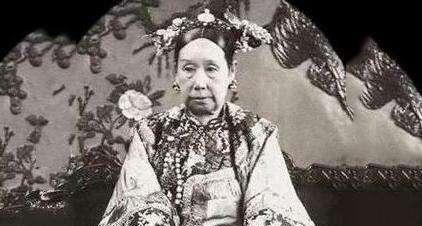Humanistic perspective
Edited the I Nine Song
In Chinese history, there have been many examples of women in power, and Cixi was the de facto controller in the late Qing Dynasty. The late Qing Dynasty was different from other dynasties, the decaying Late Qing Dynasty was difficult to resist the Western powers, and China during this period was bullied by Western countries.
After the Western powers opened the Chinese market, Cixi needed to deal with some foreign documents, and at this time, she needed to help Cixi with a female official who knew how to translate, and Yu Deling was the most important female official in front of Cixi.

Yu Deling, who many people also call her Princess Deling, was elected to the palace thanks to the fact that she lived with her father in Japan and France for six years in her early years, thus gaining a lot of insight and proficiency in multi-Chinese. In the political environment at that time, Yu Deling was undoubtedly the image spokesman of the late Qing Dynasty.
In the late Qing Dynasty, the society at that time was still very feudal, and women did not pay much attention to it. A large part of the reason why Yu Deling can have such an opportunity is because of his father Yu Geng.
Yu Geng was a Nobleman and Diplomat of the Qing Dynasty, and Yu Geng was appointed by Zhang Zhidong, the governor of Huguang, to preside over the tax collection of Shashi, and also to handle foreign affairs and teaching cases. Regarding some of Yu Geng's experiences, in the book "Memoirs of the Political Situation at the End of the Qing Dynasty", Yu Deling has a special detailed description.
Yu Geng often had to go to foreign countries to deal with affairs, and Yu Deling also followed him. In this way, Yu Deling learned a lot of knowledge abroad, and at the same time deeply appreciated the profound impact of modern civilization on human life in various fields.
In 1902, after Yu Geng's term abroad expired, the 17-year-old Yu Deling also returned to China. At that time, the political situation in the late Qing Dynasty was in a very passive situation, and Cixi wanted to please the wives of the ministers of various countries, but no one around her knew how to Chinese.
After Yu Geng returned to China, the news that his daughter Yu Deling was familiar with the cultures of various countries and knew the words of each Chinese was spread. In addition, Yu Deling was also very beautiful, so Cixi issued a decree to summon Yu Geng's two daughters, Yu Deling and Yu Rongling, into the palace, who were also called one of the eight female officials of the Forbidden City by posterity.
Of the two sisters, Yu Deling was most liked by Cixi, and she also served as a medium for Cixi to communicate with the wives of ministers and ministers of various countries, which is now a translator. Yu Deling spent two years in the imperial palace, and in 1905 he left the palace life because of Yu Geng's serious illness.
When leaving the palace, Cixi originally wanted to give YuDeling to Ronglu's son Balong, but later escaped with the help of the Guangxu Emperor. After leaving the palace, Yu Deling deeply felt that life outside the palace was good, and two years of palace life made her see a lot of cold, gloomy and sinister sides.
Although Yu Deling has a high status in the palace, the trembling feeling of "the high place is not cold" makes her deeply afraid of the palace. Shortly after leaving the palace, Yu Geng died. After his father's death, Yu became acquainted with The Vice Consul of the U.S. Consulate in Shanghai, Thédieus White.
Yu Deling and Sedius White fell in love at first sight, and the two went from acquaintance to acquaintance, and in 1907 they held a wedding in Shanghai. After their marriage, Deuters White resigned as consul in the United States and became a journalist in China.
Because Yu Deling had experienced living in the palace, relatives and friends around her asked her to record life in the palace in writing. At the repeated request of relatives and friends, Yu Deling wrote down what she saw and heard in the palace, which was the first memoir she wrote in English, "The Second Year of the Qing Palace".
After the release of Yu Deling's books, it attracted widespread attention at home and abroad, and also left a lot of information for future generations to study the life of the imperial palace. During the War of Resistance Against Japanese Aggression, Yu Deling also contributed to the "Night of China" and "Bowl of Rice" campaigns organized by the League for the Defense of China, in order to raise funds and materials for the anti-Japanese military and civilians.
But it is a pity that Yu Deling died in a car accident in Canada on November 22, 1944, at the age of 58. Yu Deling's life, there have been experiences in the west, there have been feudal palace life, can not be said to be legendary.